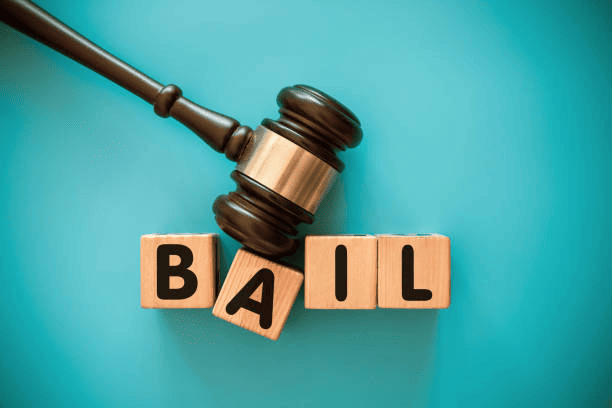What is the significance of the Bail Act 2013 of NSW? At its core, bail upholds the fundamental legal principle of the presumption of innocence. Individuals facing accusations of crimes are innocent until proven guilty in the local or supreme court. Thus, granting bail reflects this principle by allowing them to remain free while awaiting trial.
The purpose of the Bail Act 2013 is to provide a legislative framework for a decision as to whether a person who is accused of an offence or is otherwise required to appear before a court should be detained or released, with or without conditions.
This law is important because depriving someone of their liberty is a serious act. Bail safeguards individual liberty by ensuring people aren’t unnecessarily detained before their guilt is established. This essentially protects against potential abuse of power and arbitrary imprisonment.
What Is Bail?
Section 7 of the Bail Act 2013 defines bail as the authority to be at liberty for an offence. A person who, because of bail, has entitlement to be at liberty for an offence is entitled (if in custody) to be released from custody. Simply stated, it means temporary freedom from being detained due the commission of a crime that is yet to be proven.
The Court can make any of the following types of bail decisions under the Bail Law:
- Decision to release the person without bail – a police officer with the power to make bail can make this decision
- Decision to dispense with bail – this can only be done by a court or authorised justice with the power to make bail. Under this type of a decision, a person accused of the offence appears before the court or authorised justice in proceedings for the offence. Such a person has not been previously granted or refused bail for an offence and the court of justice does not grant nor refuse bail.
- Decision to grant bail – for this type, a police officer, authorised justice, or court with the power to make that bail decision.
- Decision in refusing bail for the offence.
Additional Information
However, there are still limitations as to the grant of liberty under the right to bail. Section 14 of the Bail Act 2013 provides that bail does not entitle a person to liberty:
- Until the person signs, and gives to the bail authority, a copy of the bail acknowledgment for the decision to grant bail, and all pre-release requirements of bail conditions have been complied with.
- On those occasions on which the person is required to appear before a court under his or her bail acknowledgment.
- While the person is in custody for some other offence, or reason, because of which the person is not entitled to be at liberty.
What Is the Unacceptable Risk Test?
Before the court or a police officer makes a bail decision, they should first conduct an assessment on any bail concerns. These concerns are those circumstances when the person granted bail will:
- fail to appear at any proceedings for the offence, or
- commit a serious offence, or
- endanger the safety of victims, individuals or the community, or
- interfere with witnesses or evidence.
As part of the assessment, there are several matters that the authorities must also consider before making a decision:
- the accused person’s background, including criminal history, circumstances and community ties,
- the nature and seriousness of the offence,
- the strength of the prosecution case,
- whether the accused person has a history of violence,
- whether the accused person has previously committed a serious offence while on bail (whether granted under this Act or a law of another jurisdiction),
- whether the accused person has a history of compliance or non-compliance with any of the following—
- bail acknowledgments,
- bail conditions,
- apprehended violence orders,
- parole orders,
- home detention orders, good behaviour bonds, or community service orders,
- intensive correction orders,
- community correction orders,
- conditional release orders,
- non-association and place restriction orders,
- supervision orders.
Bail Act 2013: Procedural Requirements
Under the Bail Act 2013, section 31 states that the rules of evidence do not apply in bail decisions. It states that a bail authority may consider any evidence or information that it considers credible or trustworthy in the circumstances and is not bound by the principles or rules of law regarding the admission of evidence.
Thus, any matter that must be decided by a bail authority in exercising a function about bail is to be decided on the balance of probabilities.
Bail Act 2013: Bail Applications
Part 7 of the Bail Act 2013 provides for the general provisions about bail applications. Under this Part of the Act, the following are essential information regarding bail applications:
- One must deal with bail applications expeditiously. This means that parties should deal with bail application as soon as reasonably practicable.
- Application by someone facing accusation must be heard on the first appearance.
- The court has the discretion to refuse to hear a bail application. The refusal happens when:
- the application is frivolous or vexatious, or
- the application is without substance or otherwise has no reasonable prospect of success.
- Multiple release or detention applications to the same court are not permissible.
- A court or authorised justice shall handle any bail application as a fresh hearing. Moreover, any evidence or information previously presented in connection with a previous bail decision may be presented again or in lieu of it.
Bail Act 2013: Security Requirements
What are the security requirements under the Bail Act 2013? Part 9 of the Australian Bail Law lays out the general provisions about security requirements. One of these requirements is that there must be a receipt for any bail money or bail security deposited with a bail authority under a security requirement of a bail condition.
Moreover, if you are a bail guarantor, you can apply to be discharged of liability. A bail guarantor is anyone who enters into a bail security agreement to support the release of an accused person on bail, other than the accused person themself.
Additionally, the law allows the revocation of bail granted by the court or police officer if bail security is no longer intact. This means that the bail security ceases to exist, its value becomes diminished, or it ceases to be available for security for any reason.
Lastly, the rule on the return of the bail money and security states that a court that makes a finding that a person granted bail is guilty or not guilty of an offence must ensure that consideration is given to returning any bail money or bail security deposited in connection with the grant of bail for the offence.

Get Legal Advice from JB Solicitors
Having legal counsel guarantees that lawyers uphold your rights during the bail procedure. Your lawyer can advise you on bail conditions, if special or exceptional circumstances exist, negotiate their terms, and challenge unreasonable restrictions.
JB Solicitors’ lawyer will make sure that we will be an advocate for your best interests in court. Contact us today if you need help with a criminal appeal about a serious indictable offence.
